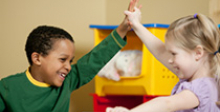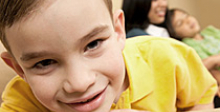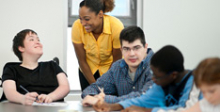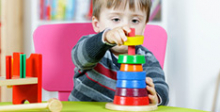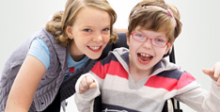Internal mini form
Contact Us Today
Feeling good about oneself is linked to so many important activities and achievements. Without the confidence and without optimism, taking on the challenges of the day can seem overwhelming, or impossible. For that reason, it’s vital to take advantage of whatever resources that are available for maintaining one’s own mental health.
About mental health
According to the National Institute of Mental Health, 26.2 percent of American adults have a mental disorder. A person’s ability to feel confident and empowered is just as important as the ability to navigate life’s stressors and cope day-to-day. Mental health is linked to how a person feels, thinks and acts.
If a person feels bad about his or herself, or is prone to depression or anxiety, or has a severe mental health disorder, it’s difficult to function. Because of the insidious nature of mental disorders, seeking assistance is a positive step towards improved health, happiness and overall wellness.
What is mental health?
Early childhood is a crucial period in the development of emotional, social, attentive, and behavioral skills required to guide an individual into – and throughout – adult life. In childhood, children learn to recognize and label feelings in order to understand and properly express themselves. They develop sympathy and care for others once they recognize that others have feelings, too. As they grow, children learn to manage emotions, block anxiety, sadness, and frustration while learning to delay gratification, resist temptation, maintain focus, and complete tasks.
Parents, siblings, friends, teachers, and caregivers have the primary influence in a child’s social, emotional, and physical health. Opportunities to learn, interact, converse and socialize will help foster security, stability, compassion, and support. Emotionally healthy children choose positive behaviors, develop mutual friendships, find acceptance in others, and excel academically.
For optimal outcomes:
- develop positive emotional interactions
- show consideration for the child’s feelings, desires and needs
- show genuine interest in the child
- treat child with respect
- express pride in who they are and what they do
- seek opportunities for them to learn and interact
If a child exhibits signs of distress, depression, aggression, or anti-social behavior, parents may want to seek guidance. If a child has difficulty in play, learning, or interacting with others, he or she may benefit from screens, evaluations, problem identification, interventions, or focused instruction by professionals in the field of psychology. These professionals may include social workers, psychologists, psychiatrists, behavioral therapists, developmental specialist, or school counselor. If school age, the behaviors may be identified and corrected through the Independent Education Plan (IEP) process.
Left untreated, a child becomes isolated, has counter-productive interactions, and experiences peer rejection. These can lead to lower academic performance, social-emotional deficiencies, and attention deficits.
Forms of cognitive, psychological, attention, and behavioral associated conditions, include:
- Abnormal neurologic control
- Academic performance impairment
- Anxiety
- Attention disorders
- Attention-deficit/hyperactivity disorder
- Behavioral problems
- Depression
- Down syndrome
- Intellectual impairment
- Learning disabilities
- Mental health
- Neurosis
- Psychological health
- Psychosis
- Self-esteem
- Sleep disturbances
Intellectual impairment
Intellectual impairment, also referred to as cognitive impairment, is estimated to exist in as many as two-thirds of Cerebral Palsy cases. About one-third of children with Cerebral Palsy are severely or moderately impaired, while another one-third has only mild cognitive impairment. Psychological and behavioral disorders are often present.
A child with a below-average IQ (70 or lower) is said to have intellectual impairment. A child with intellectual impairment has difficulty with reasoning, learning, problem solving, and adaptive functioning – the everyday skills needed for self-care and the navigation of societal norms. Below-average IQ and difficulty with adaptive functioning both have a adverse impact on a child’s ability to learn; IQ level will affect scholastic, as well as behavioral learning. A pediatric neurologist, pediatric radiologist or developmental pediatrician may assist in diagnosing cognitive impairment. A psychologist, behavioral therapist or a developmental specialist can identify learning deficiencies.
Mental illness
Mental illness, or psychiatric disorder, usually refers to a severe form of mental or behavioral disorder such as personality disorder, bipolar disorder, schizophrenia, or addiction.
These conditions are not caused by the same brain injury that causes Cerebral Palsy, and therefore not usually associated with Cerebral Palsy; they could be a co-mitigating factor if a child or adult has both conditions.
However, social anxiety, severe depression, suicidal thoughts, or anxiety can develop in an individual that has Cerebral Palsy. This could be due to frustrations with his or her physical condition, being teased or bullied by peers, feelings of inadequacy, abuse, inability to cope, or even part of the maturation process. Situations or specific circumstances can lead a person to distress.
If behavioral changes do occur in an individual with Cerebral Palsy, a psychologist, social therapist, or behavioral therapist can be of assistance and suicide hotlines are always available.
Sometimes relief can come by gaining perspective, learning coping mechanisms, improving self-identity, interacting with others, joining therapy or support groups, attending counseling, and accomplishing in areas of interests.
It is estimated that 15 to 30 percent of individuals with disabilities – twice the rate within the general population – are prone to substance abuse, such as alcohol abuse or drug addiction. According to a 1997 report by the Rehabilitation Research and Training Center on Drugs and Disability, individuals with learning disabilities, mental illness, traumatic brain injury, and spinal cord injury were amongst the population with disability to be most affected. For individuals with addiction, residential treatment programs can be helpful.

Associative conditions
Cerebral Palsy affects muscle tone, gross and fine motor functions, balance, coordination, and posture. These conditions are mainly orthopedic in nature and are considered primary conditions of Cerebral Palsy. There are associative conditions, like seizures and intellectual impairment that are common in individuals with Cerebral Palsy. And, there are co-mitigating factors that co-exist with Cerebral Palsy, but are unrelated to it. Understanding conditions commonly associated with Cerebral Palsy will enhance your ability to manage your child’s unique health concerns.
Associative Conditions
Common associative conditions
Click on a condition listed below to learn more.


